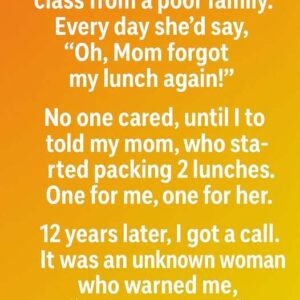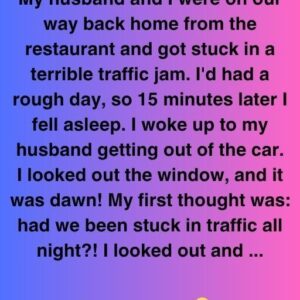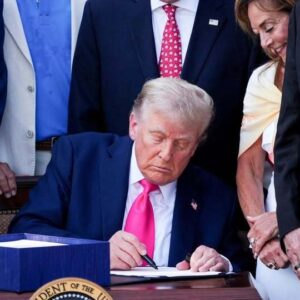In the shadow of the elevated train tracks that rumble overhead every few minutes, a different kind of commerce thrives on the streets below. Along a two-mile stretch of Roosevelt Avenue in Queens, New York, what was once a vibrant commercial corridor serving the borough’s diverse immigrant communities has transformed into something residents now reluctantly call their neighborhood’s “red-light district.” The transformation is so complete, so troubling, that local leaders have taken the extraordinary step of bypassing their own congressional representative to plead directly with federal law enforcement for intervention.
For Alexandria Ocasio-Cortez, the progressive firebrand who represents much of this troubled area, the crisis on Roosevelt Avenue has become an uncomfortable reminder that even the most idealistic political rhetoric must eventually confront the harsh realities of urban governance. As her constituents grow increasingly desperate for federal intervention, the gap between her national progressive profile and local community needs has never been more apparent.
A Community’s Desperate Plea
Local leaders in Rep. Alexandria Ocasio-Cortez’s district in New York City have again asked FBI Director Kash Patel to finally put an end to what they describe as the “festering scourge” of brutal foreign gangs who are forcing women into prostitution and selling drugs in Queens. The request, coming in the form of multiple letters and public protests, represents a remarkable escalation in the community’s efforts to address what they see as a crisis that local and state authorities have been unable to solve.
The Restore Roosevelt Avenue Coalition, a grassroots organization that has emerged as the primary voice for frustrated residents, has organized a number of rallies outside what they say are well-known brothels in the progressive champion’s district. The scenes they describe are deeply disturbing: women openly soliciting sex on the sidewalks while customers rush inside buildings that masquerade as legitimate businesses.
“We are writing to your agency again, requesting an investigation and enforcement action regarding the ever-worsening situation on the Roosevelt Avenue Corridor,” the coalition wrote in their most recent letter to Patel. The group advocates for improving the quality of life and ensuring safer streets in the predominantly immigrant neighborhood, but their pleas have taken on an increasingly urgent tone as the situation has deteriorated.
The Scope of the Problem
The brothels are close to Roosevelt Avenue in Queens, which has been a crime-ridden, violent, and prostitution-ridden area for years. Because of this, the NYPD has tried to crack down on it several times, but it is still called a “red-light district.” The persistence of these problems despite repeated law enforcement efforts has led community leaders to conclude that only federal intervention can break the cycle.
Police told Fox News Digital that they had detained 350 people this year for crimes related to prostitution in and near the troubled strip. However, residents argue that these arrests represent only the tip of the iceberg, as the underlying criminal organizations continue to operate with impunity. The numbers paint a picture of an area where illegal activity has become so normalized that it occurs in broad daylight, in full view of families and children.
One brothel is hidden next to a bodega, and another pretends to be a massage parlor. These operations have become so brazen that they operate openly, with little apparent fear of sustained law enforcement action. At a recent protest on a Sunday, protesters put up “Shut it down” posters on the run-down door of the second brothel to ask the feds to get rid of the shady cathouses for good.
Federal Response and Gang Connections
The community’s initial outreach to federal authorities has produced some results. In April, they wrote to Patel, and a few weeks later, the FBI, along with the DEA and other agencies, detained eight people who were thought to be members of the vicious 18th Street gang. They were accused of carrying out severe beatings and stabbings to keep control of the strip.
The coalition claimed the arrests demonstrated that federal officials had heard their previous requests, but they argued that only a larger crackdown under federal racketeering and trafficking statutes could break up the networks that had been there for a long time. The limited nature of the federal response has frustrated residents who see the criminal organizations as resilient and adaptable to law enforcement pressure.
They added that other 18th Street gang enforcers have taken their place and that the gang, along with Tren de Aragua and Chinese organized crime groups, controls the strip with an iron fist. This multi-ethnic criminal alliance represents a sophisticated operation that extends far beyond simple street-level prostitution to encompass human trafficking, drug distribution, and document fraud.
The Human Cost
The impact on the community extends far beyond the immediate criminal activity. “The rampant prostitution that we see on our streets 24 hours a day, seven days a week, is having an adverse effect on the mental and spiritual health of our children and families,” Rosa Sanchez, the group’s spokesperson, said at last week’s rally. Her words capture the daily reality for families trying to raise children in an environment where commercial sexual exploitation has become a visible part of the neighborhood landscape.
“There is no reason that our children should have to bear witness to the human tragedy of women being forced to sell their bodies for the profits of traffickers and pimps. It is happening in front of our homes. It must stop,” Sanchez continued. The proximity of these operations to elementary schools and residential areas has created a situation where parents feel they must constantly shield their children from witnessing activities that no child should see.
The psychological toll on the community is evident in the way residents describe altering their daily routines to avoid certain streets and times of day. What should be a vibrant commercial district serving the needs of immigrant families has instead become a place that many residents avoid entirely, undermining the social fabric of the neighborhood.
AOC’s Limited Response
A representative for Ocasio-Cortez stated that the congresswoman has asked the federal government for more than half a million dollars to help “nonprofits focused on violence interruption programs and support for victims of sex trafficking” in the area. While these efforts represent some acknowledgment of the problem, community leaders argue that they fall far short of what is needed to address the crisis.
The disconnect between AOC’s national progressive brand and her response to this local crisis has become a source of frustration for constituents who feel their concerns are being overshadowed by her broader political agenda. Critics argue that her focus on national issues has come at the expense of addressing the immediate needs of her district.
The limited nature of her public engagement with the Roosevelt Avenue crisis stands in stark contrast to her high-profile involvement in national debates about social justice and economic inequality. This gap has not gone unnoticed by residents who are seeking leadership on an issue that directly affects their daily lives.
Neighboring District Cooperation
Rep. Grace Meng, whose district borders the affected area, has taken a more active approach to addressing the crisis. Meng told Fox News Digital that she talks to the police and locals about violence on a regular basis and that she was sending the group’s letter to the FBI. She also stated that she is trying to get federal money to help the NYPD fight crime along Roosevelt Avenue.
“I have formally requested federal money to support local initiatives and projects specifically requested by the NYPD that would provide them with more tools to combat crime in the area,” Meng said in a statement. Her more direct engagement with law enforcement and willingness to publicly discuss the issue has created a contrast with AOC’s approach that has been noted by local activists.
The difference in approach between the two Democratic representatives has highlighted how even politicians from the same party can have very different strategies for addressing urban crime and community safety issues.
The Complex Criminal Enterprise
The criminal organizations operating along Roosevelt Avenue represent more sophisticated operations than traditional street-level prostitution. Community leaders and law enforcement sources describe an integrated criminal enterprise that includes multiple revenue streams and international connections.
They further say that the gangs are involved in human trafficking and giving out fraudulent green cards. This expansion into document fraud represents a particularly serious concern for federal authorities, as it touches on issues of national security and immigration enforcement that go far beyond local crime concerns.
The multi-national nature of the criminal organizations—involving 18th Street gang members, Tren de Aragua operatives, and Chinese organized crime groups—suggests coordination and sophistication that local law enforcement agencies may be ill-equipped to handle. This complexity has reinforced community arguments that federal intervention is necessary.
Law Enforcement Challenges
Despite the NYPD’s efforts, including multiple crackdowns and the deployment of additional officers, the fundamental problems persist. The cyclical nature of arrests and re-establishment of operations suggests that the criminal organizations have developed strategies to minimize the impact of local law enforcement actions.
Police have used nuisance abatement laws to shut down several brothels, but the legal process is slow and allows operations to relocate rather than cease entirely. The community’s frustration with this cycle of closure and reopening has contributed to their demands for federal intervention with more substantial legal tools.
The challenge is compounded by the fact that many of the women involved in prostitution are themselves victims of trafficking, making traditional law enforcement approaches that focus on arrests potentially counterproductive. Community leaders have called for approaches that target the organizers and profiteers rather than the women being exploited.
Political Implications
The Roosevelt Avenue crisis has created political vulnerabilities for AOC that extend beyond the immediate community concerns. Critics have used the situation to question her effectiveness as a representative and to highlight what they see as the gap between progressive rhetoric and practical governance.
The fact that community leaders have felt compelled to bypass their own representative to seek federal intervention represents a significant political challenge for AOC. It suggests a breakdown in the normal channels of constituent communication and advocacy that could have lasting implications for her relationship with the district.
The crisis has also provided ammunition for critics of progressive approaches to crime and public safety, who argue that ideological commitments to criminal justice reform have made it difficult to address serious public safety concerns effectively.
Community Organizing and Grassroots Activism
The emergence of the Restore Roosevelt Avenue Coalition represents a significant grassroots organizing effort that has transcended typical political divisions. The coalition includes both Democrats and Republicans, immigrants and longtime residents, united by their shared experience of neighborhood deterioration.
The group’s decision to organize protests and publicity campaigns reflects a level of frustration that has overcome the usual reluctance of immigrant communities to engage with law enforcement. Many residents who might normally avoid contact with authorities have become vocal advocates for increased enforcement.
The coalition’s media strategy, including cooperation with conservative news outlets like Fox News, represents a pragmatic approach that prioritizes results over political alignment. This willingness to work with any media outlet willing to cover their story has helped raise the profile of their concerns.
Federal Law Enforcement Perspective
The FBI’s response to the community’s pleas has been measured but significant. While officials have not made extensive public statements about their intentions, the arrest of eight 18th Street gang members demonstrates that federal authorities are taking the situation seriously.
FBI Assistant Director Christopher Raia has indicated that the agency will continue to dedicate resources to combating violent crime and transnational gangs in communities, but has not committed to the kind of comprehensive crackdown that community leaders are seeking.
The challenge for federal authorities is balancing the community’s demands for immediate action with the need for careful investigation and preparation for prosecutions that will actually dismantle the criminal organizations rather than simply displacing them.
Economic and Social Factors
The Roosevelt Avenue crisis cannot be understood apart from broader economic and social pressures affecting immigrant communities in New York City. The area’s transformation reflects the intersection of economic inequality, immigration patterns, and criminal exploitation that affects many urban areas.
The presence of multiple criminal organizations suggests that Roosevelt Avenue has become a particularly attractive location for illegal enterprises, possibly due to factors such as transportation access, population density, and previous establishment of criminal networks.
The community’s predominantly immigrant character may make it more vulnerable to exploitation, as residents may be reluctant to contact authorities due to immigration status concerns or cultural barriers to reporting crimes.
Looking Forward
The Roosevelt Avenue crisis represents a test case for how urban communities can effectively advocate for federal intervention in local crime problems. The success or failure of the community’s efforts may influence how other neighborhoods approach similar challenges.
For AOC, the situation presents an opportunity to demonstrate that progressive politicians can be effective advocates for public safety when their constituents demand action. Her response to the community’s concerns may influence how voters evaluate her effectiveness as a representative.
The broader implications extend to questions about the relationship between federal and local law enforcement, the effectiveness of different approaches to combating organized crime, and the role of community organizing in influencing law enforcement priorities.
The Path Ahead
As the Restore Roosevelt Avenue Coalition continues to pressure federal authorities for action, the situation on Roosevelt Avenue has become a symbol of the challenges facing urban communities across the country. The combination of international criminal organizations, local government limitations, and federal resource constraints creates a complex problem that resists simple solutions.
The community’s persistence in seeking federal intervention, despite the political complexities involved, demonstrates the depth of their frustration with the status quo. Their willingness to continue organizing and advocating suggests that this issue will not fade away without substantial action.
For AOC and other political leaders in the area, the Roosevelt Avenue crisis serves as a reminder that effective representation requires attention to local concerns as well as national political objectives. The resolution of this crisis may well determine how history judges their commitment to the communities they represent.
The ongoing struggle over Roosevelt Avenue reflects broader questions about urban governance, federal-local cooperation, and the effectiveness of different approaches to combating organized crime. As community leaders continue their campaign for federal intervention, they are essentially arguing for a new model of how communities can advocate for themselves when traditional political channels prove inadequate.
The outcome of their efforts will likely influence how other communities approach similar challenges and may reshape the relationship between grassroots organizing and federal law enforcement priorities. In this sense, the crisis on Roosevelt Avenue has implications that extend far beyond the borders of AOC’s district to questions of urban governance and community empowerment across the country.





